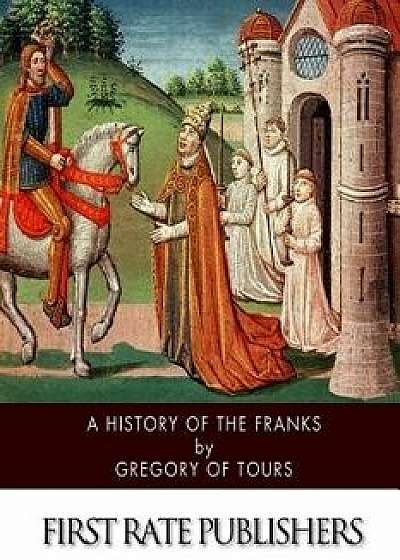
A History of the Franks, Paperback/Gregory of Tours
Descriere
Saint Gregory of Tours' comprehensive history of the Frankish people, who ruled over much of what is modern-day France and Germany, is published here in full with an original map and genealogical chart. Gregory's history of the Franks is valuable for having emerged when the events described were recent. As such this text, also known as Decem Libri Historiarum, has become one of the prime sources for historians of the so-called Dark Ages. Gregory provides a chronicle of Frankish monarchs, their lineage, principle battles, and the local Gallic culture. The Franks gradually assumed control of the governmental vacuum left by the crumbling Roman Empire. First formally recognized as an authority by the Roman Empire in the 4th century, less than two centuries later the Romans had all but ceded control of their Western Empire. This left many of the tribes previously denigrated as 'barbarians' to assume full control. The Franks were one such group, and their assumption of rule was marked by contrast: some of the tribes were vigorously combative against the remnants of the Roman Empire and other tribes, while others merged with the territory's occupants to birth a new country. The Merovingian kingdom would for centuries be the seat of the Frankish civilization, as the formerly loose-knit tribes came together as a single, unified culture. While civil wars occurred, the trend was gradually toward development and maturation of the society as a precursor to later Medieval era kingdoms. Gregory of Tours takes us through the gradual collapse of the Roman influence, through famous early monarchs such as Clovis, and the Merovingian era in general. The interactions of the Franks with Christendom and their gradual assumption of Christian beliefs, are also noted. Gregory was himself an inhabitant of Frankish territory, and thus his histories count among the most reliable and important texts of the time. This edition possesses the much-praised translation to English by Earnest Brehaut.





